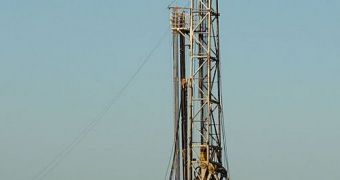The conclusions of a report presented on February 16 in Vancouver, British Columbia, indicate that a modern technique used in drilling for natural gas is not detrimental to groundwater and the environment in any direct manner.
Speaking in front of colleagues gathered at the annual meeting of the American Association for the Advancement of Science (AAAS 2012), experts at the University of Texas in Austin (UTA) said that they were unable to find any evidence to suggest that fracking leads to contaminated water supplies.
Over the past few years, fracking has become increasingly common, and concerns about its potentially negative effects on the environment have grown proportionally. Also known as hydraulic fracturing, fracking is a process by which natural cracks in rock layers are expanded and exploited.
This is done by injecting pressurized liquids into the rocky layers, forcing naturally-occurring fractures to give way and expand. This enables natural gas, petroleum and some types of coal to migrate from source rocks to deposit layers, from where they can be more easily mined.
As a response to critics claiming that the technique was harmful, study leader and UTA expert Charles Groat said: “We found no direct evidence that fracking itself has contaminated groundwater.” He is a former director of the US Geological Survey (USGS).
Far from claiming that fracking has no negative side effects, the UTA investigators suggest that the effects it causes may be harder to distinguish than first thought. It would appear that contamination mostly occurs from storage ponds and wells that are lined with poor-quality insulators.
Wells and ponds are usually located closer to the surface than the depth at which the actual fracking is being conducted. Therefore, the procedure has an indirect impact on the environment, but a serious one nonetheless, ScienceNow reports.
The US Environmental Protection Agency (EPA) is conducting a study on the effects of fracking as well. The first results are scheduled to be released later this year, but the international scientific community is anxious to get its hands on that report.
Even though the UTA study is highly documented, it's unlikely that it will put an end to the debate on fracking. Proponents and opponents are likely to clash over this issue for years to come.

 14 DAY TRIAL //
14 DAY TRIAL //